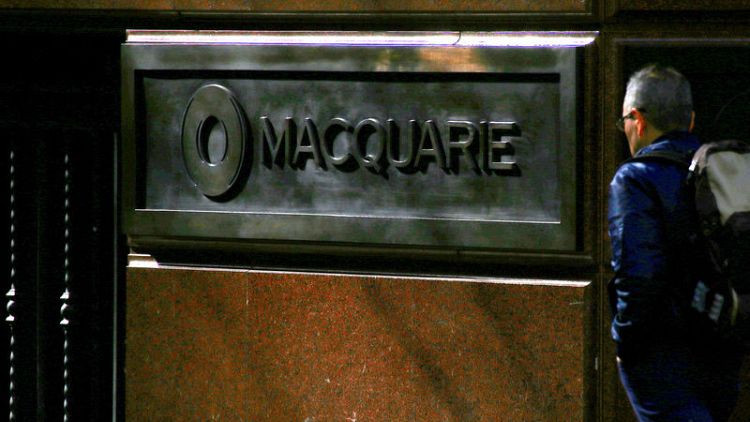SYDNEY (Reuters) - Australia's banking regulator said on Wednesday it has ordered Macquarie Group Ltd <MQG.AX> and the domestic units of Rabobank and HSBC <HSBA.L> to tighten their local funding arrangements, saying the banks had breached liquidity reporting requirements.
The Australian Prudential Regulation Authority (APRA) in a statement said it had reviewed the three lenders and found they were "improperly reporting the stability of the funding they received from other entities within the group."
The regulator said the banks had provisions in their funding agreements that would potentially allow the group funding to be withdrawn in a stress scenario, undermining the stability of the Australian units.
The "reporting of their intra-group funding as stable has been in breach" of regulatory standards, APRA said.
"APRA is requiring these banks to strengthen intra-group agreements to ensure term funding cannot be withdrawn in a financial stress scenario," APRA said. The regulator was "considering a range of further options, including the imposition of higher funding and liquidity requirements."
APRA gave no further details of the required strengthening, but did say it would require the lenders to re-state past funding and liquidity ratios.
Macquarie said intra-group loans to its banking unit represented up to 15% of its bank's total funding, the repayment of which could be accelerated due to a "material adverse change" (MAC) clause that existed since 2007.
That clause had now been removed, and the bank would re-calculate its liquidity ratios back to 2017, to reflect the previous clauses, Macquarie said.
"It is likely that (Macquarie Bank's) recalculated liquidity coverage ratios will show a historical non-compliance," the firm said. It said if the unit had been "aware of APRA's interpretation of the MAC clause, they would have removed the clause earlier".
In a statement, HSBC said it maintained a strong liquidity and funding position, without elaborating on what led APRA to say the lender had improperly reported its liquidity ratios.
Rabobank had no immediate comment when contacted by Reuters.
APRA said there was no immediate threat to the stability of the three lenders.
However, "to ensure they would be able to withstand a scenario of financial stress, group funding agreements for Australian banks must be watertight," APRA Deputy Chair John Lonsdale said in the statement.
Australia's banks are facing tougher scrutiny in the wake of a sweeping public inquiry into the financial sector that revealed widespread wrongdoing and lax regulatory oversight.
The central bank in neighbouring New Zealand, APRA's regulatory counterpart in that country, has flagged lifting bank capital requirements and has also censured the largest lender in its market, Australia and New Zealand Banking Group Ltd <ANZ.AX>, over risk-capital failures.
(Reporting by Tom Westbrook and Paulina Duran; Editing by Stephen Coates and Christopher Cushing)



